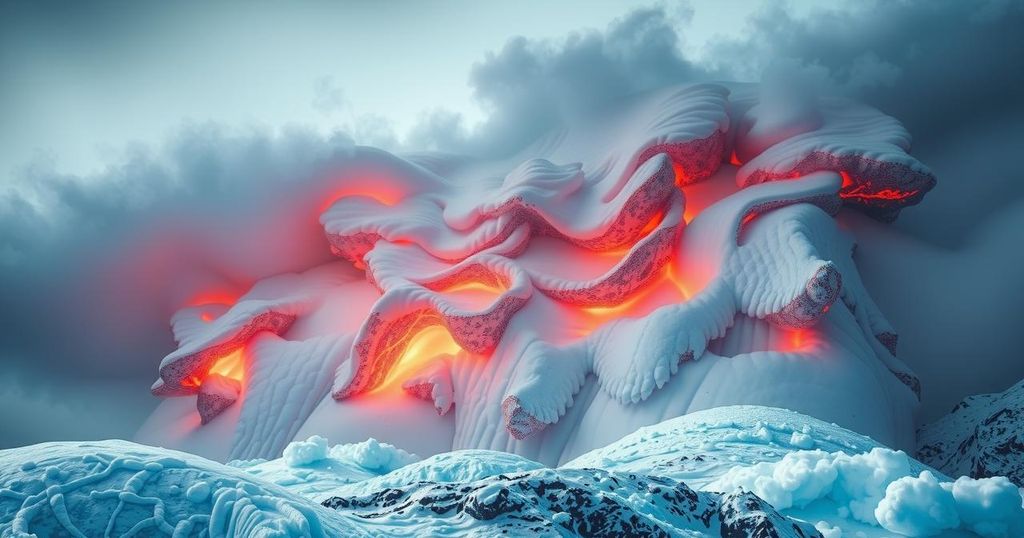The Impact of Climate Change on Recent Extreme Weather Events

The article explores the relationship between recent extreme weather events and climate change, emphasizing how advancements in climate science have linked human activity to specific weather phenomena. It discusses the gradual increase in global temperatures, the implications of these changes on everyday weather, and highlights key insights from climate scientists regarding the impact of climate on extraordinary weather patterns.
The onset of 2025 has been marked by an array of extreme weather events, including destructive wildfires in Southern California fueled by 100-mph winds and significant winter storms affecting the Mid-Atlantic and Southern regions. Meanwhile, scientists have indicated that the year 2024 was recorded as the hottest year in human history, attributed primarily to human-induced climate change.
In the past decade, advancements in scientific research have allowed for a more definitive connection between specific weather phenomena and climate change, as seen in intense heat waves and hurricanes. While not all weather variability can be directly linked to climate change, Justin Mankin, a climate scientist at Dartmouth College, remarks that the ongoing increase in global temperatures is becoming more evident in extreme and even regular weather patterns. He articulates, “The trends in climate are shaping new weather possibilities that were maybe unprecedented.”
To clarify the distinction between weather and climate, climatologist Danielle Touma from the University of Texas, Austin, describes climate as akin to the wardrobe one maintains, prepared for prevailing conditions, whereas daily weather is akin to selecting attire from that wardrobe. Scientists typically assess a region’s climate based on a 30-year average of weather patterns, reinforcing the notion that anomalies do influence averages, but common weather conditions wield greater significance.
Since the mid-1800s, global temperatures have risen approximately 1.3 degrees Celsius due to extensive fossil fuel combustion. Deepti Singh, a climate scientist at Washington State University, asserts that this gradual temperature rise may subtly impact daily weather patterns. “Everything we’re experiencing, it is occurring in a different environment,” she states, noting that climate change is fundamentally influencing the weather. Evidence suggests reductions in freezing days and increased frequency of heat waves since the 1960s.
The complexities of atmospheric and oceanic patterns, reshaped by climate change, have introduced unprecedented weather events, such as the extreme heat wave in the Pacific Northwest in 2021, which was exacerbated by climate change. Alex Hall, a climate scientist from UCLA, elucidates, “We’ve kind of put the climate on steroids,” acknowledging the extraordinary nature of such events.
Recent methods of analysis, termed “detection” and “attribution,” have seen significant development in recent years. These techniques utilize climate models to simulate the Earth’s systems under alternative fossil fuel consumption scenarios, enabling researchers to assess the degree of influence human-induced climate change has on various weather events. For instance, they determined that the rainfall from Hurricane Helene was 10% more intense due to climate change and 40% more probable.
The article discusses the intricate relationship between extreme weather events and climate change, highlighting how advancements in climate science have improved the ability to attribute specific weather events to human activities. The primary focus is on recent weather extremes occurring in 2025, the ongoing impacts of climate change, and the methodologies used to understand this connection. Key figures and climate scientists are cited to provide insight into the ongoing discourse within the field of climatology.
The article elucidates the growing recognition of the influence of human-induced climate change on extreme weather events. While not every unusual weather occurrence can be directly attributed to these changes, the steady rise in global temperatures increasingly manifests in our climate, reshaping familiar weather patterns. The advancements in climate science enable a clearer understanding of these influences, underscoring the profound impact of climate change on weather phenomena.
Original Source: www.opb.org






